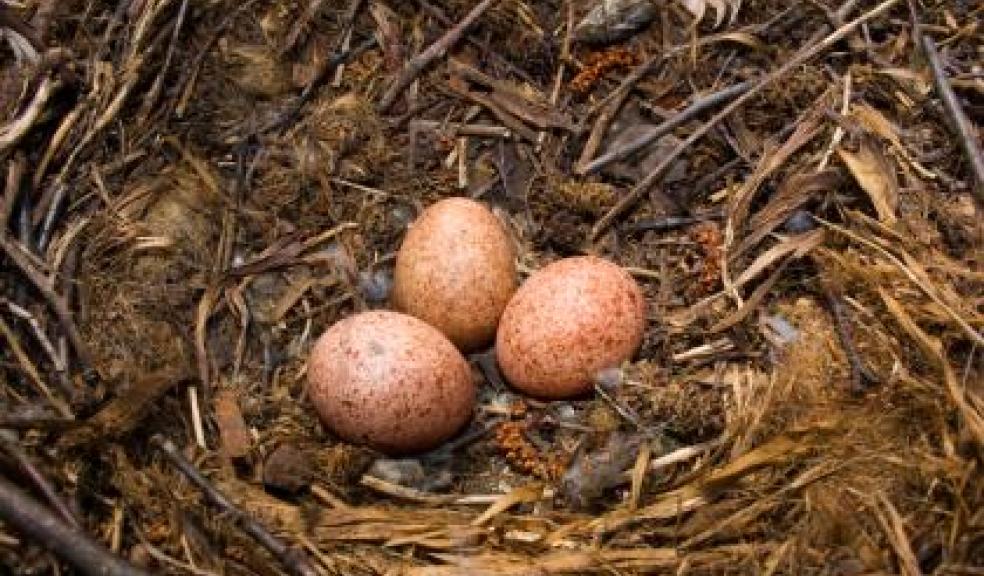
Operation Easter - Police target anyone stealing birds' eggs
Easter is on the doorstep, birds are nesting, some have already laid eggs, and the national campaign to protect them is now underway.
A new element to this year’s operation will target those who take the eggs or chicks of birds of prey, to sell to illegal falconries.
Collecting wild birds’ eggs is illegal and no longer just a schoolboy hobby. The police say it remains the pastime of a minority of individuals, who take whole clutches of birds’ eggs from some of Scotland’s rarest birds. The eggs are then stored in secret collections.
Operation Easter will, for the first time, be run by the National Wildlife Crime Unit (NWCU), based in Livingston, Scotland. The operation, launched in Scotland 16 years ago, is now UK-wide and Tayside Police, who used to manage it, have handed over responsibility to the Unit.
Detective Inspector Nevin Hunter, head of the NWCU, said:
“Many bird species are becoming less common for a number of ecological reasons. They can well do without the added pressure of egg thieves and illegal disturbance. The latter is particularly worrying as we are increasingly receiving reports that egg collectors have moved into this area of activity. We will do everything possible to gain good intelligence that brings these wildlife criminals before the court.”
Bob Elliot, Head of Investigations for RSPB, said:
“RSPB welcomes the continued commitment of the police and NWCU to protect nests from those criminals who wish to destroy our wildlife. Operation Easter is an excellent example of multi-agency, partnership working and has achieved considerable success in reducing the theft of the eggs of some of our rarest and vulnerable species over the years. However, as the cases below show, we cannot afford to be complacent.”
Background
PAW is the Partnership for Action against Wildlife Crime. PAW partners include a wide range of bodies committed to tackling wildlife crime including conservation, land management, shooting and law enforcement organisations. PAW defines wildlife crime as any unlawful act or omission, which affects any wild creature, plant or habitat. More information at http://www.defra.gov.uk/paw
Changes to the law have seen a number of egg thieves receiving jail sentences and last year a London man, Matthew Gonshaw (49), was the first to be given two ASBOs. Gonshaw, who had previously been imprisoned five times for collecting eggs, had been caught stealing eggs on the Scottish island of Rum. This resulted in his London home being searched by the Metropolitan Wildlife Crime Unit, who recovered his egg collection. He was jailed for six months at Thames Magistrates Court, and given an ASBO banning him from entering Scotland between 1 February and 31 August for ten years. Inverness Sheriff Court went one better and issued the same ASBO, though this time effective for the rest of his life. This conviction should act as a warning to others.
In November 2012 at Newton Abbot Magistrates Court two Devon men, Marcus Betteridge (52), and Seymore Crang (49) were fined £1,000 each for offences under the provisions of the Wildlife and Countryside Act 1981.
Police officers, assisted by the National Wildlife Crime Unit and RSPB found a quantity of wild birds’ eggs after searching the home of Crang. These included eggs of the lesser redpoll, redshank and tree pipit. Betteridge pleaded guilty to the disturbance of a rare Dartford warbler’s nest, while Crang had pleaded guilty to unlawful possession of eggs. Both men have previous convictions for similar offences.
The police are also appealing for help from the public. If you have information on any wild birds' eggs thieves, or those who disturb rare nesting birds without a licence, you should contact your local or nearest police station by dialling 101 and ask to speak to a wildlife crime officer if possible. Nesting will be in full swing by Easter so please contact the police if you see anyone acting suspiciously around nesting birds, particularly those that nest in colonies.
Information can also be passed in confidence to Crimestoppers at 0800 555 111.













